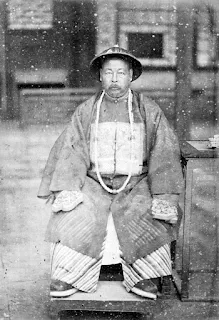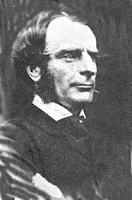Henry David Thoreau (1817-1862)
Henry David Thoreau (born David Henry Thoreau; July 12, 1817 – May 6, 1862) (pronounced like the word thorough, with emphasis on the first syllable) was an American author, poet, philosopher, abolitionist, naturalist, tax resister, development critic, surveyor, historian, and leading transcendentalist. He is best known for his book Walden, a reflection upon simple living in natural surroundings, and his essay Civil Disobedience, an argument for individual resistance to civil government in moral opposition to an unjust state.[1]
Thoreau's books, articles, essays, journals, and poetry total over 20 volumes. Among his lasting contributions were his writings on natural history and philosophy, where he anticipated the methods and findings of ecology and environmental history, two sources of modern day environmentalism. His literary style interweaves close natural observation, personal experience, pointed rhetoric, symbolic meanings, and historical lore, while displaying a poetic sensibility, philosophical austerity, and "Yankee" love of practical detail. He was also deeply interested in the idea of survival in the face of hostile elements, historical change, and natural decay; at the same time he advocated abandoning waste and illusion in order to discover life's true essential needs.
He was a lifelong abolitionist, delivering lectures that attacked the Fugitive Slave Law while praising the writings of Wendell Phillips and defending abolitionist John Brown. Thoreau's philosophy of civil disobedience influenced the political thoughts and actions of such later figures as Leo Tolstoy, Mohandas Gandhi, and Martin Luther King, Jr.
Thoreau is sometimes cited as an individualist anarchist. Though Civil Disobedience seems to call for improving rather than abolishing government – "I ask for, not at once no government, but at once a better government" – the direction of this improvement points toward anarchism: "'That government is best which governs not at all;' and when men are prepared for it, that will be the kind of government which they will have." Richard Drinnon partly blames Thoreau for the ambiguity, noting that Thoreau's "sly satire, his liking for wide margins for his writing, and his fondness for paradox provided ammunition for widely divergent interpretations of 'Civil Disobedience.'" He further points out that although Thoreau writes that he only wants "at once" a better government, that does not rule out the possibility that a little later he might favor no government.
Quotes·Quotation
Fashions
¶ Every generation laughs at the old fashions but religiously follows the new. [Fashions]
Truth
¶ Rather than love, than money, than fame, give me truth.
[1] http://en.wikipedia.org/wiki/Henry_David_Thoreau





